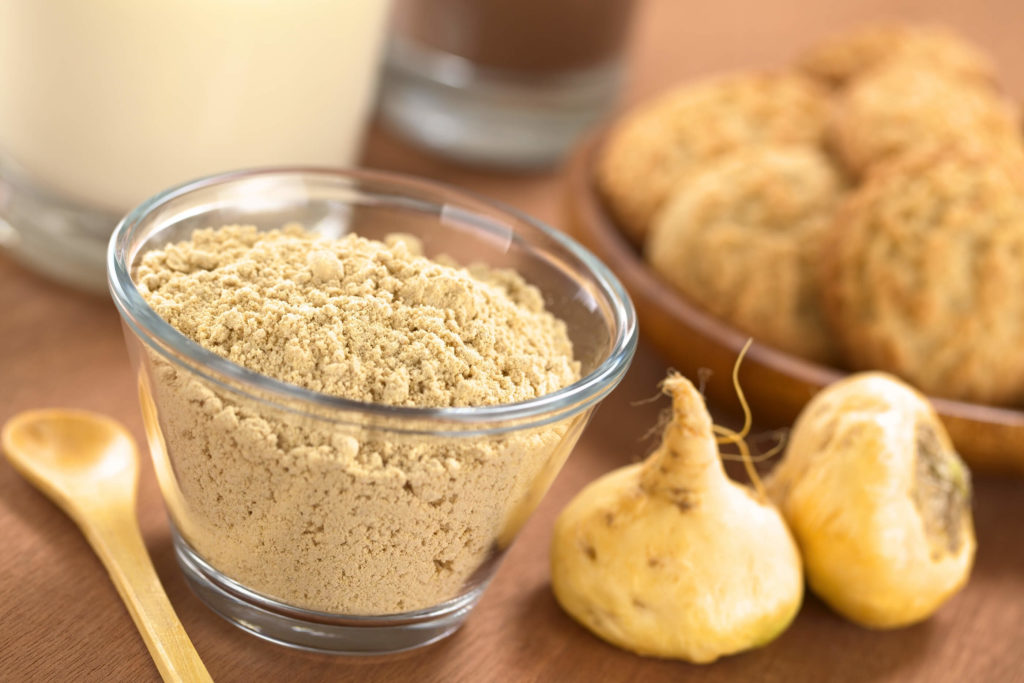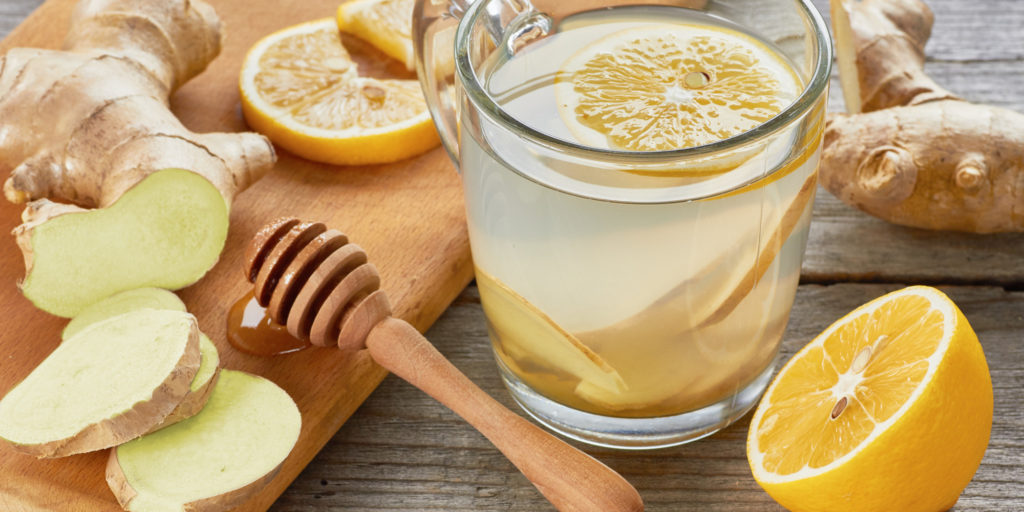The benefits of ginger are more than many. Discover the amazing health benefits of this food, but also the risks and dangers it entails.
1. Relieve Bloating
If you suffer from bloating, sip ginger tea or chew a raw, peeled piece of it. You can also add one or two slides in your legume dishes, to reduce your flatulence and discomfort. The health benefits of ginger are many. If the consumption of ginger involves certain risks and if its spicy taste is not unanimous, some of its virtues could nevertheless convince you to integrate it on your plate.
2. Virtues to relieve pain
Studies suggest that taking ginger at the first signs of a migraine can help counter the pain by blocking inflammatory hormones. Other studies argue that ginger can help alleviate the pain associated with arthritis. In one of these studies, subjects with osteoarthritis or rheumatoid arthritis took ginger powder every day. The latter had less pain and swelling than participants who did not consume powdered ginger.
3. The promising benefits of ginger to better prevent cancer
According to several studies, ginger may have anti-cancer properties. Researchers found that ginger had eliminated cancerous ovarian cells. Another study also revealed that fresh ginger supplements can help reduce inflammation of the colon.
4. Lowering Blood Sugar
A scientific study has revealed that ginger powder reduces blood sugar levels in people with type 2 diabetes. Carefully monitor your sugar levels and see your doctor see if ginger can interact with your medications. In some cases, consuming ginger could dangerously affect your insulin levels.
5. Helps to relieve nausea
The next time you get a virus or motion sickness, try ginger to relieve your stomach. One study showed that ginger was as effective as scopolamine, a prescription drug, to prevent motion sickness without the side effects of drowsiness. In 2011, in a laboratory study at the Pharmaceutical Institute of the Free University of Berlin, scientists discovered that certain ginger compounds adhered to the receptors of small intestine cells, thus blocking the action of Chemicals induced by the body that causes nausea, including serotonin.
Other studies on ginger and its effects on nausea
Imagine yourself lunching, blindfolded, while your chair turns on itself, going up and down like a wave! This was accepted by 36 courageous volunteers in 1982 as part of an original study by the State University of Pennsylvania that demonstrated the beneficial effects of ginger against motion sickness. According to researcher Daniel B. Mowrey, dry powdered ginger capsules had more effect than common drugs like Dramamine or Gravol (both based on dimenhydrinate), used for motion sickness.
Research carried out in 2003 at the University of Michigan seems to support the promising benefits of ginger to counter nausea. This time, 13 volunteers ate bacon and cheese sandwiches before sitting inside a rotating barrel, decorated with black and white stripes to amplify the feeling of discomfort! During the study, they took 1,000 to 2,000 mg of dried ginger rhizome in capsules: this decreased nausea by 40%. On the other hand, the intensity of nausea decreased twice as fast, five minutes instead of ten, in the group that took ginger compared to the placebo group.
Finally, ginger also relieved digestive heaviness in 25% of cases, in a study conducted in 2011 by the College of Medicine at Chang Gung University in Taiwan.

Risks of ginger
1. Can cause complications during pregnancy
Scientific studies have suggested a link between ginger consumption and miscarriages. Some researchers have associated it with complications of pregnancy, while others have found no problem in using it to relieve nausea. Always consult your doctor before taking any supplements or using it to treat morning sickness. Furthermore, according to the Web site, there is not enough scientific evidence to conclude that ginger consumption is safe during breastfeeding. In this sense, it is strongly advised to avoid ginger during breastfeeding to avoid unnecessary risks.
2. It can cause buccal inflammation and discomfort
Ginger can cause inflammation of the mouth and mucous membranes, which can cause discomfort and inflammation in the oral cavity when consumed naturally in powder form or in the infusion.
3. It can inhibit blood clotting
An Australian study has shown that ginger is a potent anticoagulant, even more, effective than aspirin. The National Institutes of Health warn patients who take blood-thinning medications not to consume ginger because of an increased risk of bruising or bleeding. If you are taking a medicine to thin the blood, avoid ginger. In the same way, if you suffer from heart disease, it is very dangerous to consume ginger.


